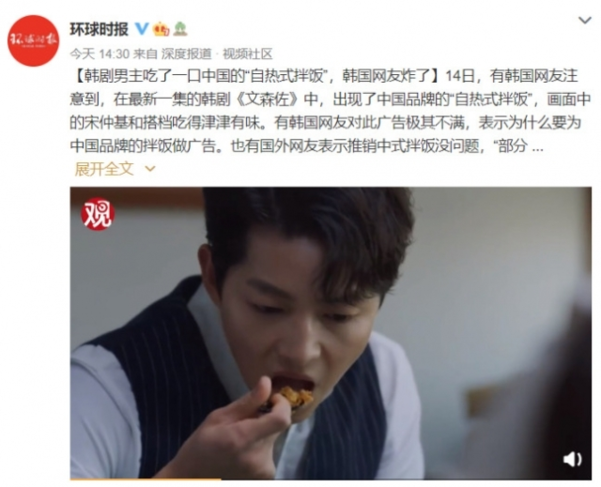Input 2021.03.18 15:51 | Revision 2021.03.18 17:46
On the 17th (local time), the official Weibo account of China’s official Global Times posted a scene where the protagonist (Song Joong-gi) of the drama’Binsenzo’ eats Chinese-made instant bibimbap. It exploded,” he reported.

Chinese netizens even pinched and mocked the overall situation of the’China Money’ PPL spreading in Korean dramas and movies. Prior to the controversial’Vinsenzo’, another Korean drama’Goddess Descent’ is used as an example. Comments such as, “A country where drama production is impossible without Chinese capital”, “Korean dramas were dominated by Chinese influence”, and “Korea’s narrow democracy is ridiculous.” I put it. The drama included the scenes of Chinese brand PPL, such as the logo of the Chinese company’Jingdong’, or a high school girl in the play eating a hot pot from the Chinese brand’Zhihaiguo’.
Earlier, the controversy over Chinese bibimbap began on the 14th when a scene in which the male protagonist (Song Joong-ki) was handed an instant bibimbap was aired in the drama’Vinsenjo’. It was a video of about 3 seconds, but bibimbap was a traditional Korean food, and the fact that the brand was a Chinese brand raised anger. The product was labeled’Korean Pao Chai (Chinese pickled vegetables)’ in Chinese, and it was pointed out that it’reflects China’s position.’

Meanwhile, in the content industry, there is a voice saying, “It is difficult to ignore the Chinese brand PPL in a situation where the production cost burden is increasing.” According to the industry, the average production cost per episode based on mini-series is about 600 million won. The production cost has tripled compared to the early 2010s, which was 200 million won.
